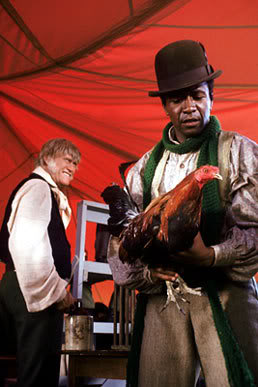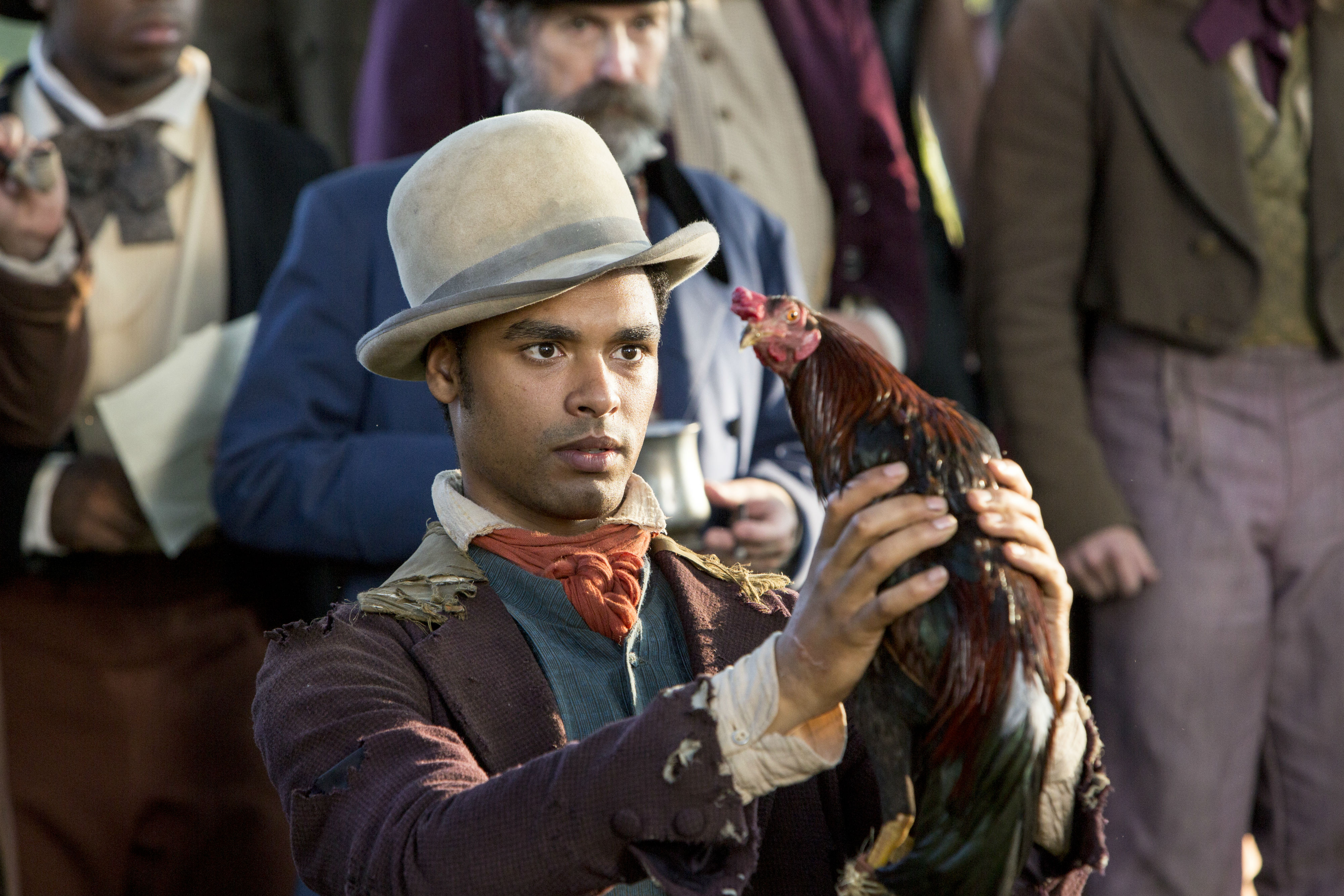The 1970s miniseries Roots, for all its limitations and compromises, awakened many white Americans, at least for awhile and perhaps longer for some, to one of the country’s bitterest truths, to the sins of our forefathers and to our perpetuation of those historical wrongs in myriad lower-case ways. It made heroes of slaves, reveled in their cleverness, and encouraged people who committed acts of casual racism in day-to-day life to look again with fresh eyes.
Not to say the TV show won the hearts and minds of KKK members, but for blue-collar people like my own relations, it was an epiphany. In a three-network world, the whole country seemed to be in it together–the watching of the show and the experience of coming to terms with who we really were. The program offered no solutions (nor could it) but made “Chicken George” seem like a member of every U.S. family, which, of course, he was. African-Americans I’ve discussed the show with have mixed feelings about it, but it was the impetus for the broad interest in the ancestral roots of people who had been violently torn from one ground and crudely replanted in another. History could no longer be denied by anyone who cared about the truth, though that population is never what you hope it would be.
In the spiky moment of our current political landscape, Roots has been rebooted, which is still sadly necessary. Maybe Chris Rock is right: The Tea Party mentality which disqualified our first African-American President and seeks to replace him with an orange supremacist could be just rage against the dying of the light, the death rattle of deep-seated racism in the country. But the ill feelings that drives such awfulness seems embedded in humans whether expressed in connection to color or nation or gender or what have you. There’s something inside us that dreams of being supreme, which can create nightmares for others. In that sense, there’s a Roots to be made for every age.
James Poniewozik’s wonderfully written New York Times review of Roots redux has a great passage near the end explaining why this iteration won’t have the collective wallop of the original. The excerpt:
Overall, the remake, whose producers include Mr. Burton and Mark M. Wolper (whose father, David L. Wolper, produced the original “Roots”), ably polishes the story for a new audience that might find the old production dated and slow. What it can’t do, because nothing can now, is command that audience.
As homogeneous as the old-school, three-network TV system could be, as many faces as it left out, Roots was an example of what it could do at its best. I watched it when I was 8 years old because it was all anyone was talking about, including the kids in my mostly white small-town school. A generation of viewers — whatever we looked like, wherever we came from, wherever we ended up — carried the memory of Kunta having his name beaten out of him.
Viewers will have to seek out this Roots, like every program now. Today’s universe of channels and streaming outlets presents a much wider range of identity and experience. But we see it in smaller groups and take away different memories.
That’s not the fault of Roots, of course; it’s simply our media world.•



